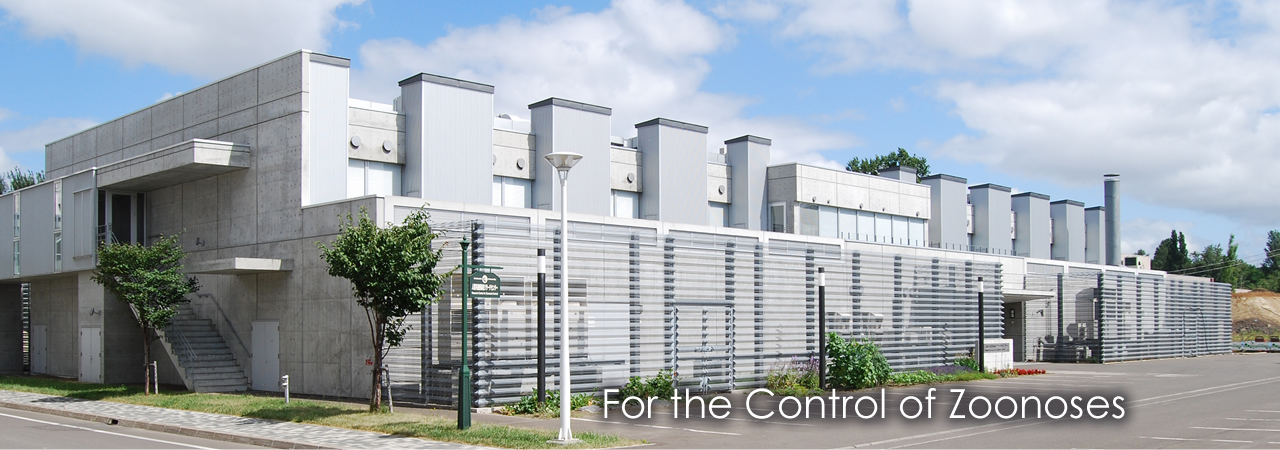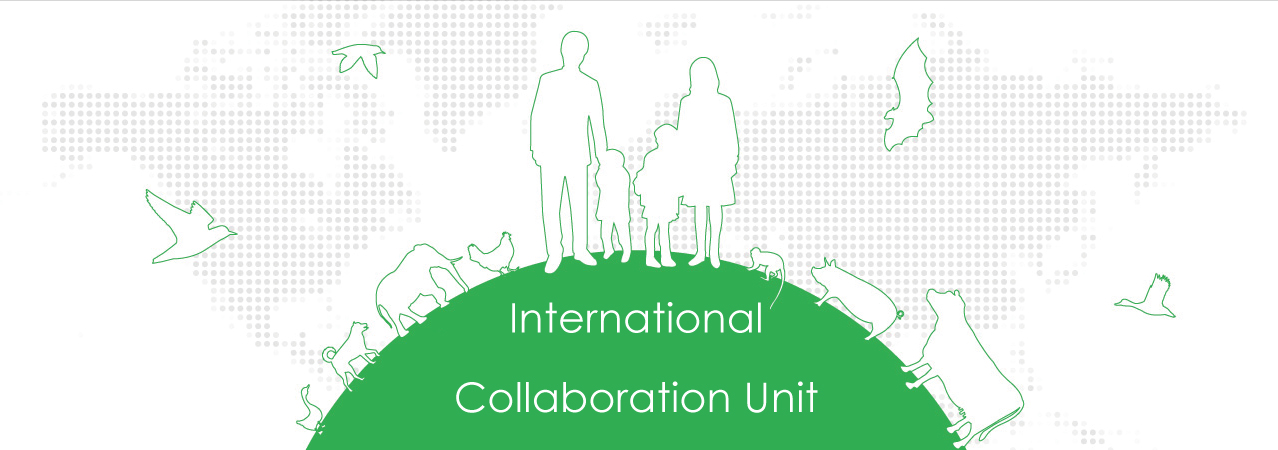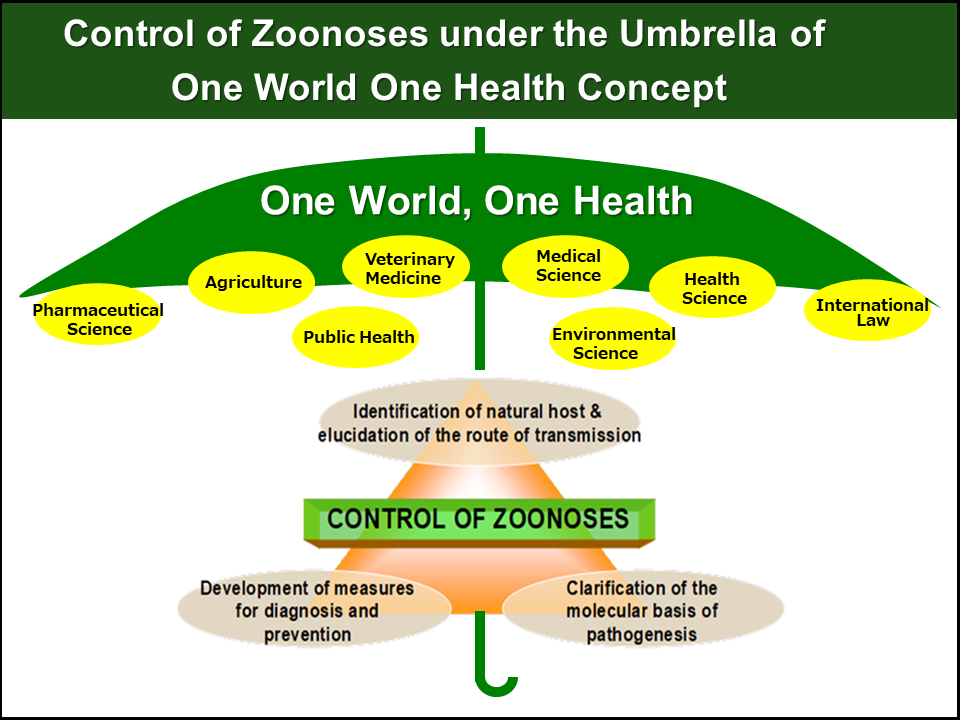



Since its establishment in April 2014, the Global Station for Zoonosis Control (GSZ) of the Global Institution for Collaborative Research and Education (GI-CoRE) has operated as an organization under the direct control of the President of Hokkaido University.
On April 1st, 2020, however, the GSZ has transitioned into the International Collaboration Unit, International Institute for Zoonosis Control and we proudly announce that it has been certified as a “GI-CoRE Cooperating Hub” by the President to further promote and develop international collaborative research and education in cooperation with GI-CoRE.
Our aims for the control of zoonoses are:
to reveal the perpetuation mechanisms and transmission routes of zoonotic pathogens by conducting global epidemiological studies on infectious diseases to improve prevention and control strategies.
to study the genetics of pathogens and the factors responsible for their pathogenicity and host range.
to develop databases of information of the above results and to make available to researchers and the general public.
to develop and disseminate globally, practical measures for the diagnosis, prevention and treatment of zoonoses.
We conduct research and education under the umbrella of the ” One World, and One Health” concept to achieve the above aims.

To integrate research activity toward the goal of “control of zoonoses”, we have established the “Consortium for the Control of Zoonoses” wherein all unit members meet together and exchange information through collaboration with leading international researchers in the following research units; The University of Melbourne, University College Dublin and King Abdullah University of Science and Technology, and Hokkaido University.

Also, the GI-CoRE affiliated researchers who belong to the overseas universities have been participating in the education program of a Graduate School of International Infectious Diseases established in 2017 to foster global experts who will take on leadership roles in the prevention and control of zoonoses. Our activities under “Consortium for the Control of Zoonoses” contribute to develop human resources to implement the One Health concept.